
2017 Research Management Colloquium – Citations, Impact & International Ranking
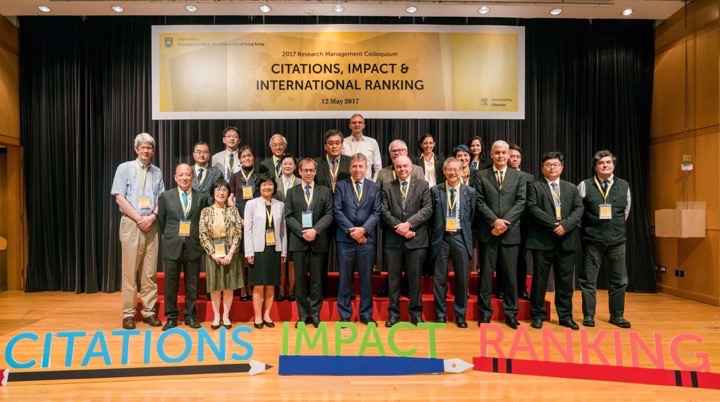 HKU, in partnership with Elsevier, hosted an international colloquium on hot topics related to citations, impact and international ranking on May 12, 2017, providing a forum for critical discussion of developments, challenges and potential solutions in higher education. Attracting some 200 participants from Hong Kong, mainland China, Asia, Europe and North America, the colloquium is part of a series aimed at generating dialogue and progress in key areas affecting international research communities.
HKU, in partnership with Elsevier, hosted an international colloquium on hot topics related to citations, impact and international ranking on May 12, 2017, providing a forum for critical discussion of developments, challenges and potential solutions in higher education. Attracting some 200 participants from Hong Kong, mainland China, Asia, Europe and North America, the colloquium is part of a series aimed at generating dialogue and progress in key areas affecting international research communities.
Opening address
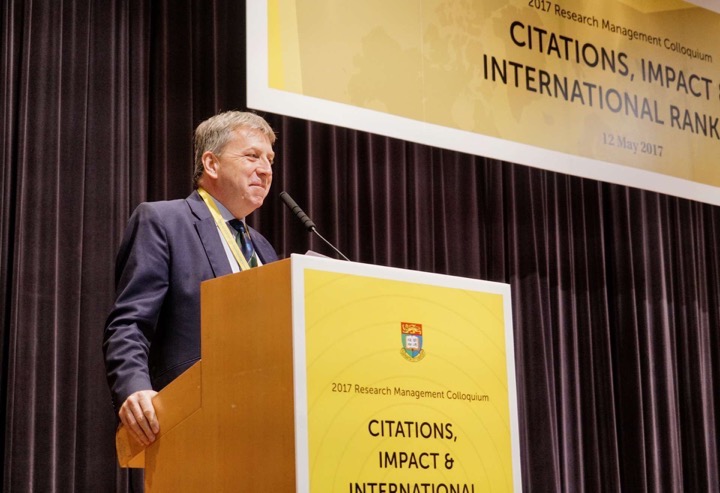 Professor Peter Mathieson, President, HKU, said that rankings are often used as short-cuts to understanding how good a university is, while citations are used as a surrogate for quality, with both having strengths and problems. “The impact of research will be a key part of the next research assessment exercise in Hong Kong, but measuring how research is making a difference is not an easy task.”
Professor Peter Mathieson, President, HKU, said that rankings are often used as short-cuts to understanding how good a university is, while citations are used as a surrogate for quality, with both having strengths and problems. “The impact of research will be a key part of the next research assessment exercise in Hong Kong, but measuring how research is making a difference is not an easy task.”
Welcoming address
Professor Andy Hor, Vice-President (Research), HKU, emphasised the importance of engaging academics in discussion of key issues that are affecting research communities and society as a whole.
Dr Anders Karlsson, Vice-President, Global Academic Relations, Elsevier, looked at moving from data to insights to actions in an increasingly dynamic landscape, and stressed the need to use more than one metric when considering research quality.
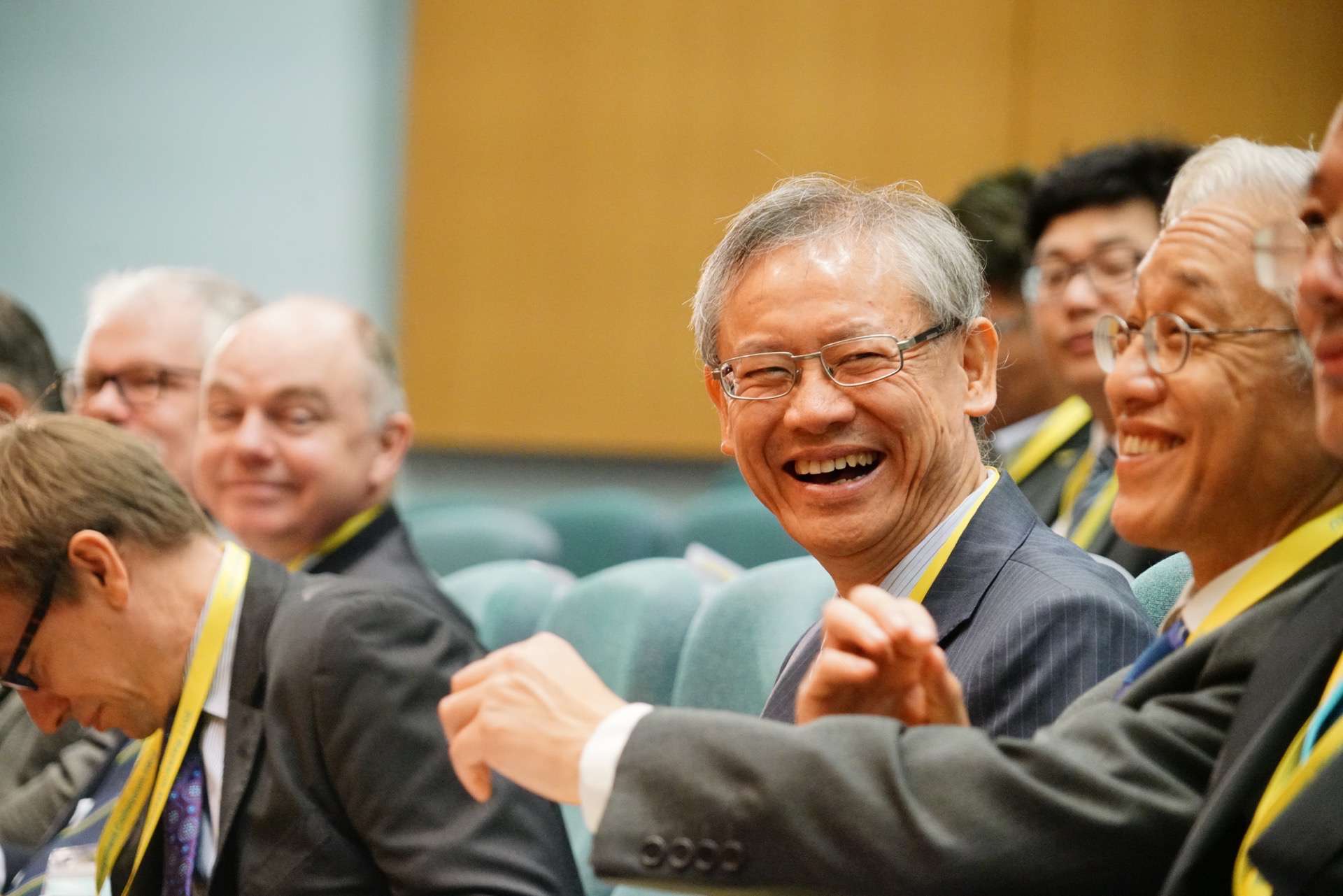
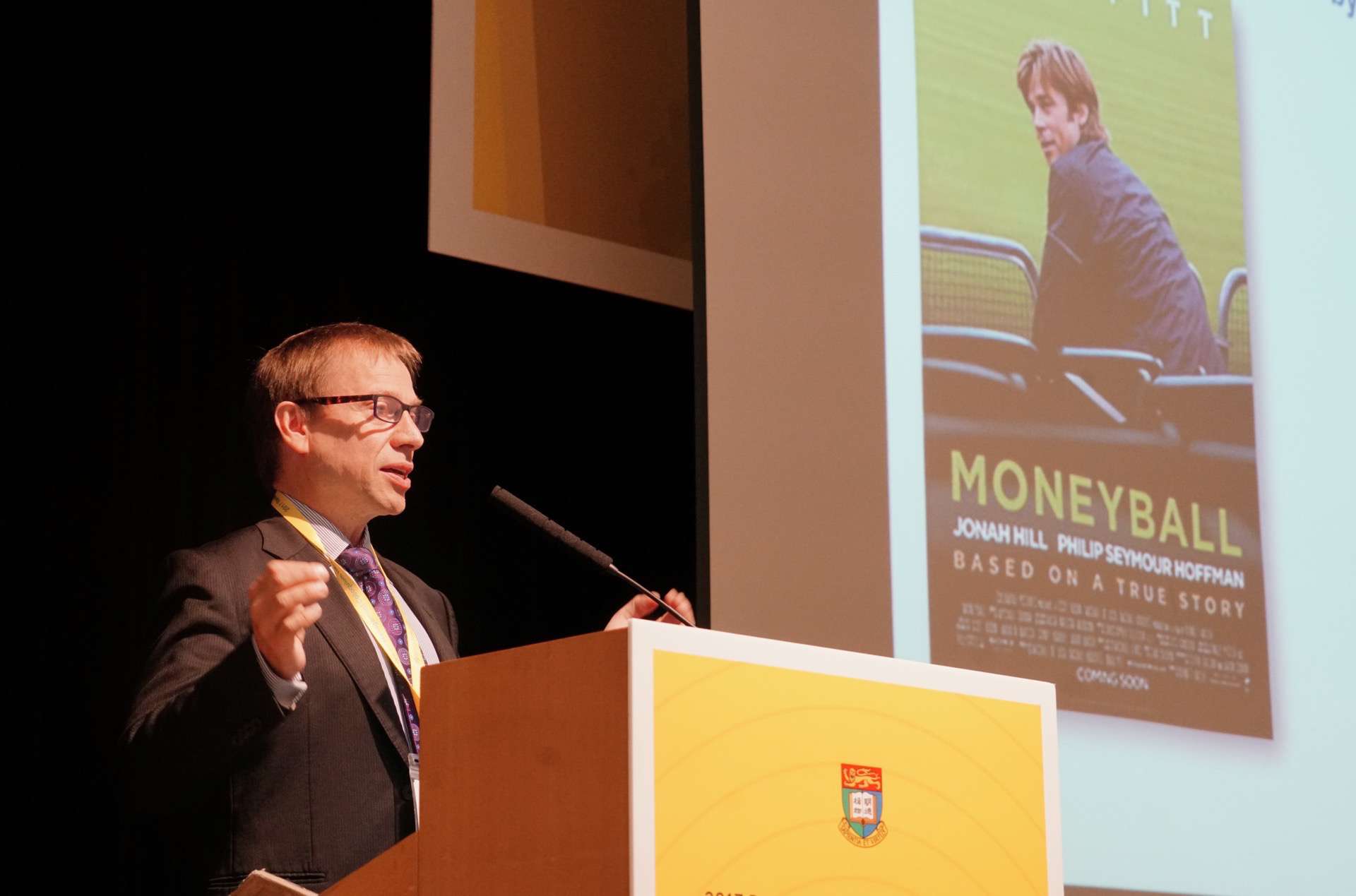
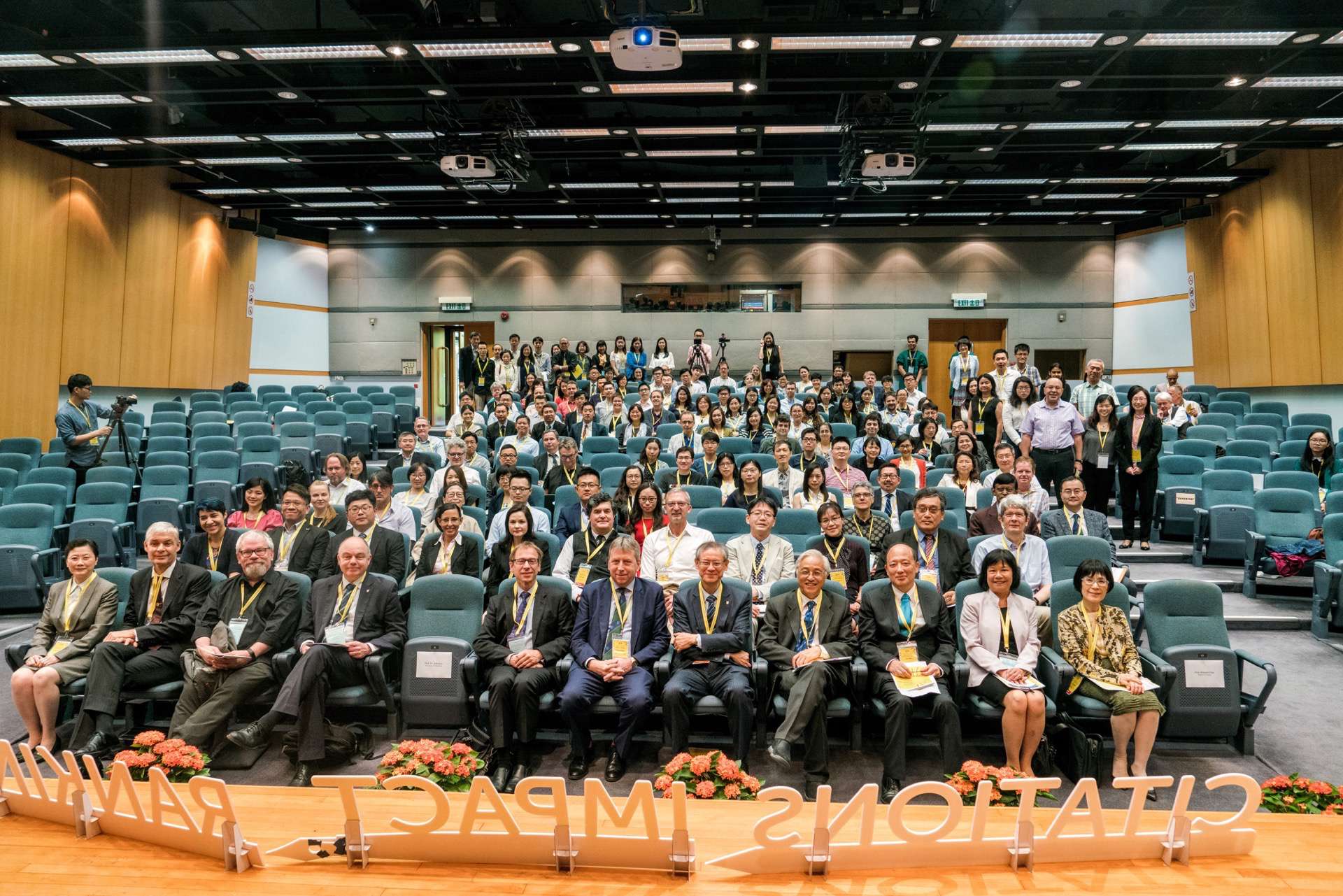
The colloquium comprised four key sessions that explored (1) publications and citations; (2) impact – academic, technological, societal, global; (3) international ranking; and (4) the future of ranking metrics. Keynote speakers under these four themes came from the South University of Science and Technology of China, Cell Press, the Karolinska Institutet, HKU, Shanghai Jiao Tong University, the University of British Colombia, University College Dublin, and Pohang University of Science and Technology. To encourage exchange of experience and ideas, each session was split equally between presentations and panel discussions. Further opportunities for interaction included a networking lunch and a colloquium banquet.
Session 1 – Publications and citations
Professor Mai Har Sham, Associate Vice-President (Research), HKU, led a panel through a lively interchange on the trials and tribulations of publications and citations, and how these are viewed through the lens of STEM and non-STEM disciplines. There is a growing danger that an overemphasis on citations has become a bean-counting process that has had the net effect of marginalising some disciplines and rendering them not worthwhile. The panel agreed, however, that taking a holistic view is perhaps the most important approach in assessing research performance.
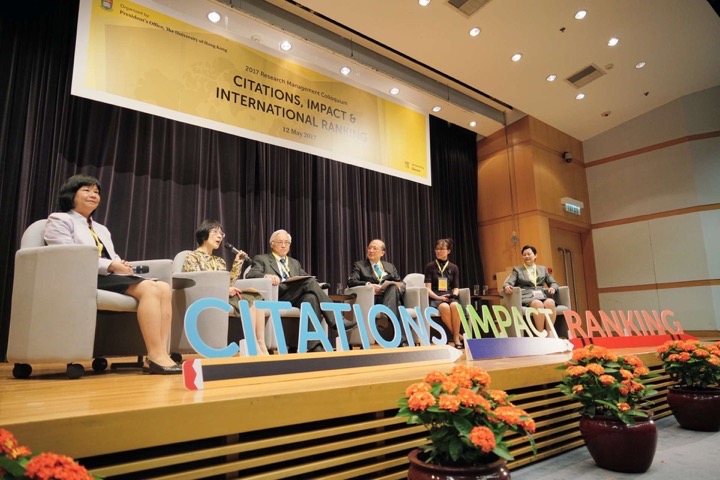 Panellists
Panellists- Professor Chen Shi-yi, President, South University of Science and Technology of China
- Professor Fanny Cheung, Pro-Vice-Chancellor/Vice-President, The Chinese University of Hong Kong
- Professor Paul Tam, Provost and Deputy Vice-Chancellor, HKU
- Professor Vivian Yam, Chair Professor, Department of Chemistry, HKU
- Dr Helena Yang, Deputy Editor, Cell Press
Session 2 – Impact
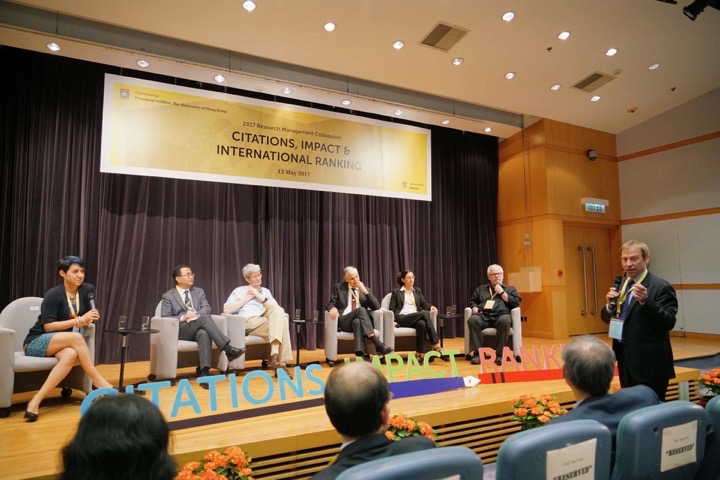 Professor Aleksandra B. Djurišić, Associate Dean, Faculty of Science, HKU, explored academic, technological, societal and global impact, and the challenges of how all these are measured. Echoing the first session’s panellists in the need to take a more comprehensive view, the second panel felt that impact was multi-faceted and that considering a “large basket of metrics” that combined both quantitative and qualitative dimensions was essential. One delegate posed the question of whether AI could eventually help us identify quality citations and by so doing, complement the wealth of quantitative data we have available.
Professor Aleksandra B. Djurišić, Associate Dean, Faculty of Science, HKU, explored academic, technological, societal and global impact, and the challenges of how all these are measured. Echoing the first session’s panellists in the need to take a more comprehensive view, the second panel felt that impact was multi-faceted and that considering a “large basket of metrics” that combined both quantitative and qualitative dimensions was essential. One delegate posed the question of whether AI could eventually help us identify quality citations and by so doing, complement the wealth of quantitative data we have available.
Panellists
- Professor John Bacon-Shone, Associate Director, Knowledge Exchange Office, HKU
- Professor Matthew Evans, Dean, Faculty of Science, HKU
- Professor Ola Hermanson, Senior Researcher, Department of Neuroscience, Karolinska Institutet
- Mrs Sarah Huggett, Analytical Services Product Manager, Elsevier
- Dr S C Kim, Director, Technology Transfer Office, HKU
Session 3 – International ranking
Professor John Kao, Vice-President (Global), HKU, navigated his panel through the controversial waters of international rankings and the love-hate relationship that universities have with ranking agencies. While ranking systems have always courted controversy, the panellists recognised their significance but advised that they be used judiciously.
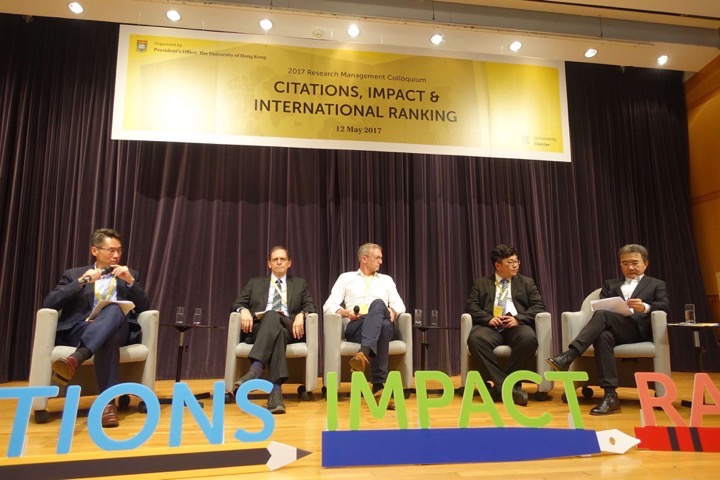 Panellists
Panellists
- Dr Ying Cheng, Associate Professor and Executive Director, Center for World-Class Universities, Graduate School of Education, Shanghai Jiao Tong University
- Professor Roland Chin, President and Vice-Chancellor, Hong Kong Baptist University
- Professor John Kao, Vice-President (Global), HKU
- Dr Martin Kirk, Director, Office of Research Services, The University of British Columbia
- Professor Gerard A Postiglione, Chair of Higher Education (Division of Policy, Administration and Social Sciences Education), Faculty of Education, HKU
Session 4 – The future of ranking metrics
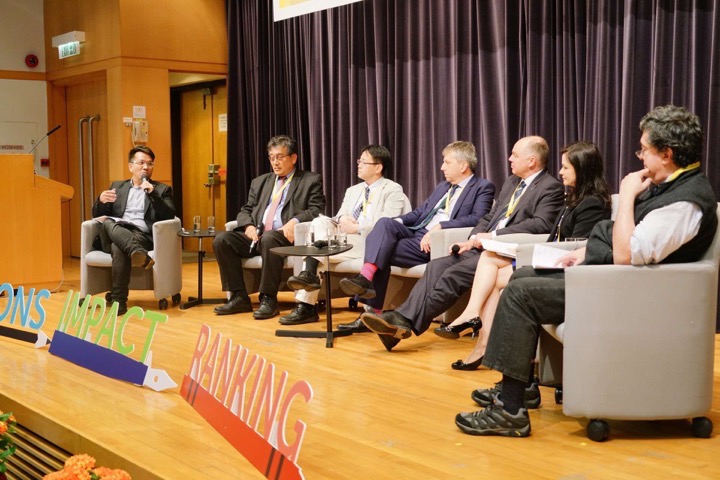 Professor Ricky Kwok, Associate Vice-President (Teaching & Learning), engaged his panel in the future of ranking metrics, noting that while “nobody likes them, everybody checks them”, and that they are likely to continue to have a place in the higher education space. Interestingly, rankings have led to greater investments in universities in some jurisdictions; for individual institutions, higher rankings have resulted in benefits in staff and student recruitment. While the impact of rankings varies across institutions, perhaps there is greater need for universities to work with ranking agencies to ensure that the metrics are at least “relevant, robust, responsive and consistent”.
Professor Ricky Kwok, Associate Vice-President (Teaching & Learning), engaged his panel in the future of ranking metrics, noting that while “nobody likes them, everybody checks them”, and that they are likely to continue to have a place in the higher education space. Interestingly, rankings have led to greater investments in universities in some jurisdictions; for individual institutions, higher rankings have resulted in benefits in staff and student recruitment. While the impact of rankings varies across institutions, perhaps there is greater need for universities to work with ranking agencies to ensure that the metrics are at least “relevant, robust, responsive and consistent”.
Panellists
- Professor Garth Cooper, Professor in Discovery & Experimental Medicine, Director of Centre for Advanced Discovery and Experimental Therapeutics, Faculty of Medicine and Human Sciences, University of Manchester
- Professor Andrew J Deeks, President, University College Dublin
- Professor Amane Koizumi, National Institutes of Natural Sciences, Japan
- Dr Alison Lloyd, Director, Institutional Research and Planning Office, The Hong Kong Polytechnic University
- Professor Peter Mathieson, President, HKU
- Professor Euiho Suh, Pohang University of Science and Technology, South Korea
More information can be found on the colloquium website at vpr.hku.hk/colloquium, where this article first appeared along with more photographs and a video.


